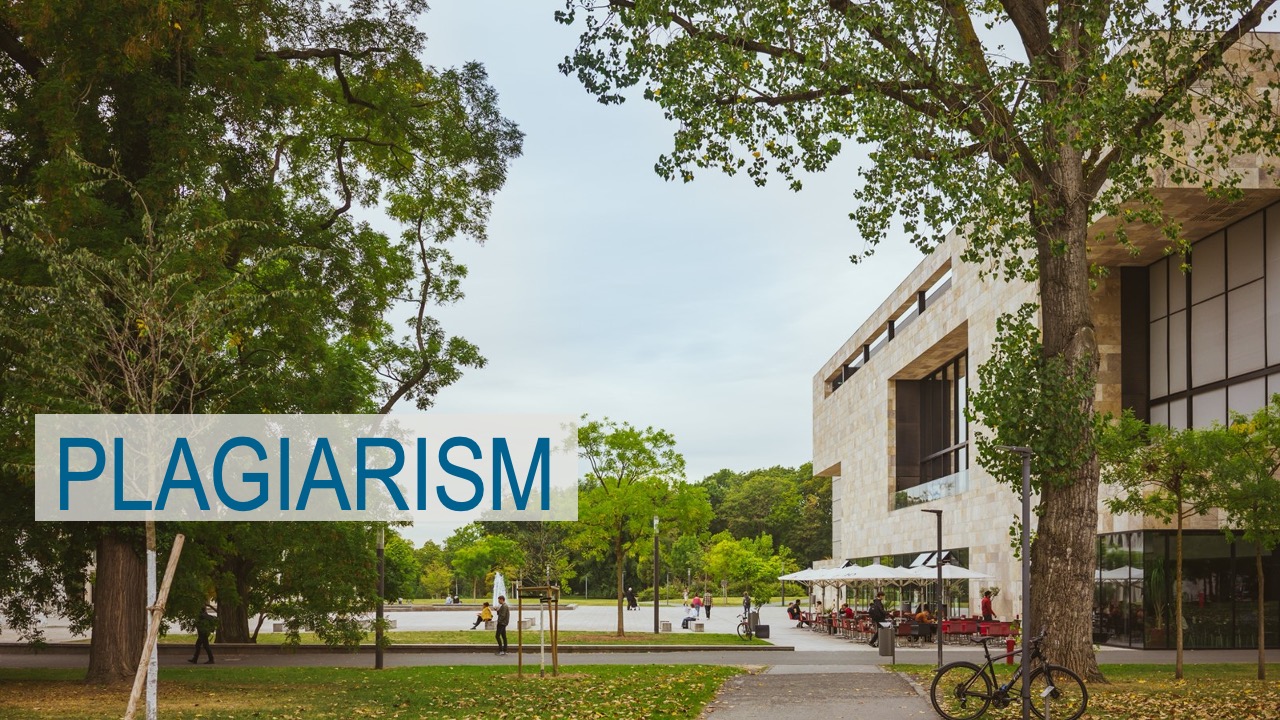Dealing with Plagiarism
Since the 2014 summer semester, the Faculty of Social Sciences has developed a procedure for dealing with plagiarism, which has been approved by the Faculty Council. The guiding principle in academic work is honesty towards oneself and others. The Faculty of Social Sciences is bound by Goethe University Frankfurt’s principles for the safeguarding of good academic practice as well as the Guidelines for Safeguarding Good Research Practice of the German Research Foundation. In this sense, all academic papers submitted to the Faculty of Social Sciences for assessment must meet the applicable academic standards.
What is Plagiarism?
Plagiarism is a form of academic misconduct and an infringement of the basic principles of good academic practice.
A paper submitted at the Faculty of Social Sciences is identified as plagiarism if it verifiably uses the intellectual property of another person without marking it as such, thereby suggesting or claiming its authorship. Intellectual property can include whole texts, parts of texts, wordings, ideas, arguments, illustrations, tables or data and must be marked as the intellectual property of the author. If such marking is deliberately omitted in a submitted paper, it causes those assessing the work to make mistakes and thus constitutes deception. All regulations for submitted papers that exist at the Faculty of Social Sciences sanction deception.
The most
common forms of plagiarism are:
(adapted from Schwarzenegger, Ch./ Wohlers, W.: “Plagiatsformen
und disziplinarrechtliche Konsequenzen" in: Fuchs, M.: Quellen zitieren, nicht
plagiieren (University of Zurich, unijournal 4/06, p. 3.)
- The author uses another person's entire work or essential parts of it (full plagiarism).
- The author uses and combines parts of texts from different works of others without indicating the sources. This also includes downloading and using parts of texts from the internet without indicating the source (copy & paste plagiarism).
- Translating foreign-language texts or parts of foreign-language texts and passing them off as one's own (translation plagiarism).
- Using parts of a text from another work, but slightly changing and/or rearranging it (paraphrasing), without indicating the source with a reference.
In addition, there are other forms of academic misconduct:
- The author submits a paper under his/her name that was written by another person (ghostwriting).
- The author submits a paper more than once as an examination achievement, for example in different modules or degree programmes (double assessment of examination achievements).
All these forms of plagiarism remain inadmissible even if the author is mentioned in another context in the paper.
What happens in the event of suspected or actual Plagiarism?
The Faculty of Social Sciences strongly opposes infringements of this kind. As a matter of principle, all papers submitted to the Faculty of Social Sciences must be presented in digital form and include the student’s “Declaration on Examination Achievements” confirming that they have written the paper independently. The papers submitted are retained for a specific time period in accordance with the respective rules and are thus available for easier identification of plagiarism as well as for later checks.
In the event of suspected plagiarism, teaching staff at the Faculty of Social Sciences are requested to review papers submitted for assessment more closely. If a paper submitted for assessment is identified as plagiarism, certain procedural steps are taken:
- Teaching staff state their reasons and provide proof of the plagiarism in writing. The submitted paper is graded as 5.0 (“Insufficient”).
- The Examination Office documents each case of plagiarism as an attempt at deception.
- The Examination Committee examines whether the case is serious. If this is not the case, the paper can be repeated. However, if the case is serious, the student can be excluded from producing further examination achievements. This means that their degree programme in Sociology or Political Science is terminated.
- Students have the possibility to appeal or object against Examination Committee decisions.
The Examination Committee acts on the basis of the applicable Study and Examination Regulations and sanctions academic misconduct accordingly. These sanctions can have far-reaching consequences for the author, such as exclusion from producing further examination achievements or – if discovered later – withdrawal of the academic degree.
Downloads
Since
the 2014 summer semester, students are required to
submit this declaration as a compulsory part with all written work. Examination
achievements without this declaration are not accepted for grading. In the case
of the dissertation, an electronic version must also be submitted.
You can find the "Declaration on Examination Achievements" in the downloadcenter under your field of study.
- Studying at Goethe University
- International applicants
- Faculties
- Overview of study programmes
- Programme for refugees
- GRADE
- Goethe Business School (continuing education)
- Research at Goethe University
- Scientific news
- Goethe Welcome Center (for international researchers)
- Collaborative research projects
- Individual research
- Visiting fellowships
- Endowed chairs
- About the University
- News-in-brief
- University administration
- Campus locations
- Campus life
- University archives (German)
- Rhine-Main-Universities





